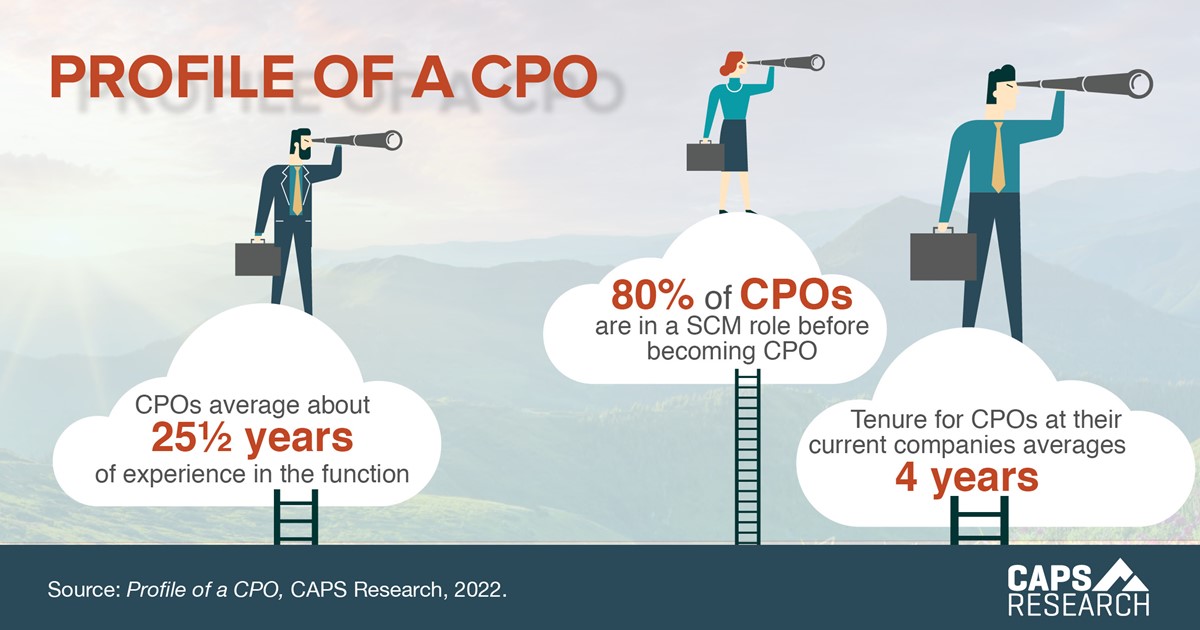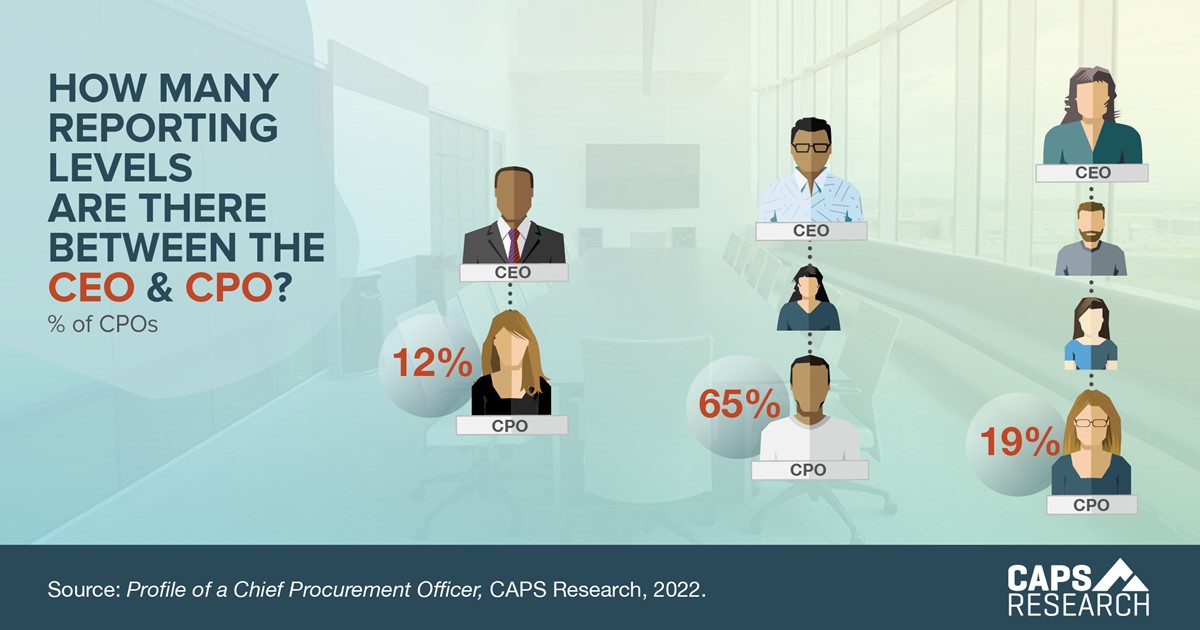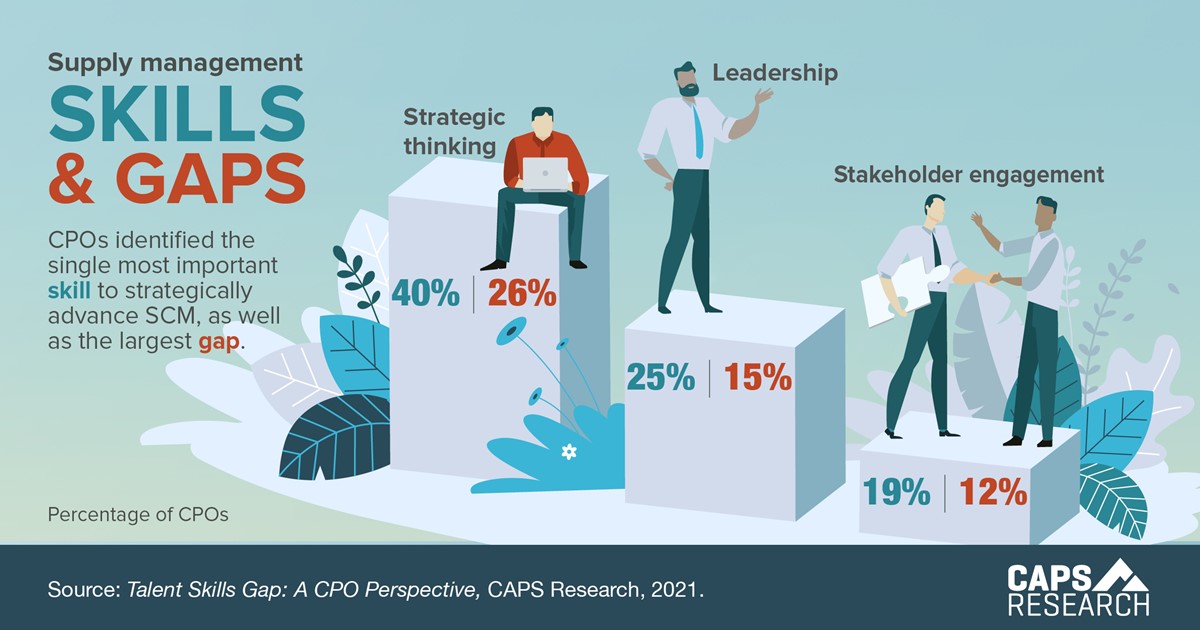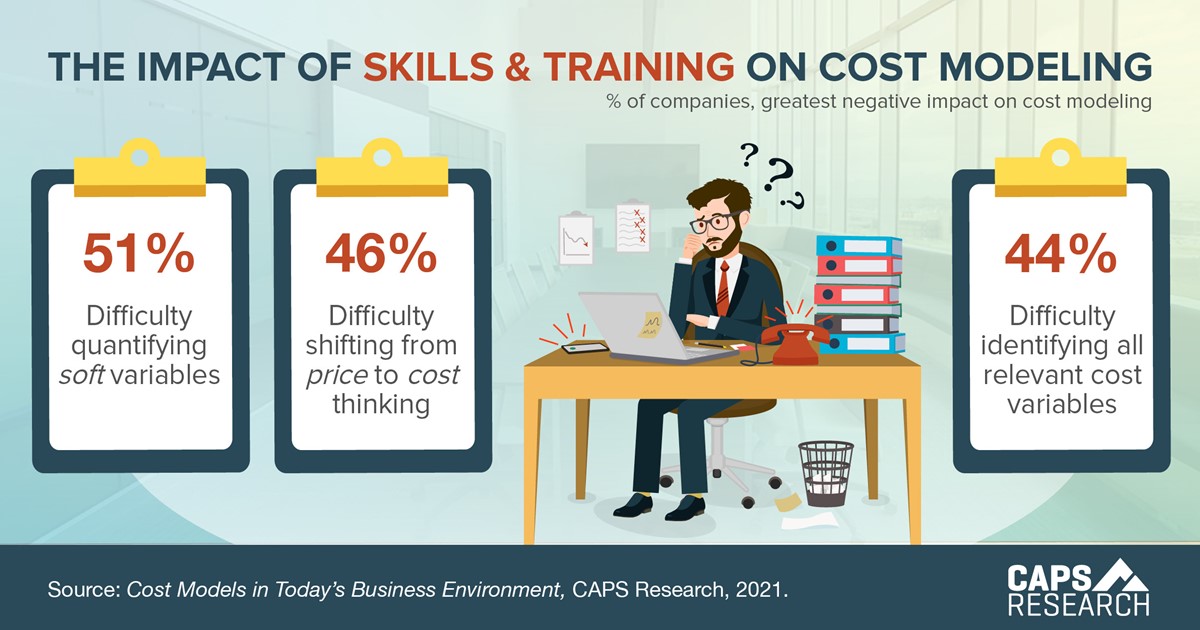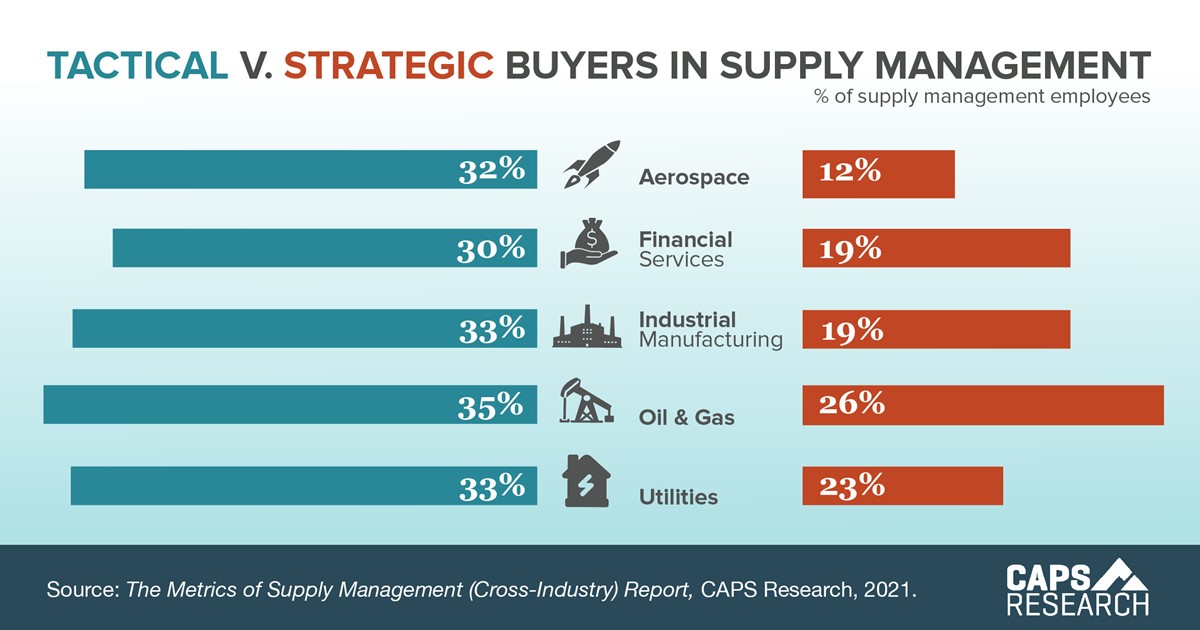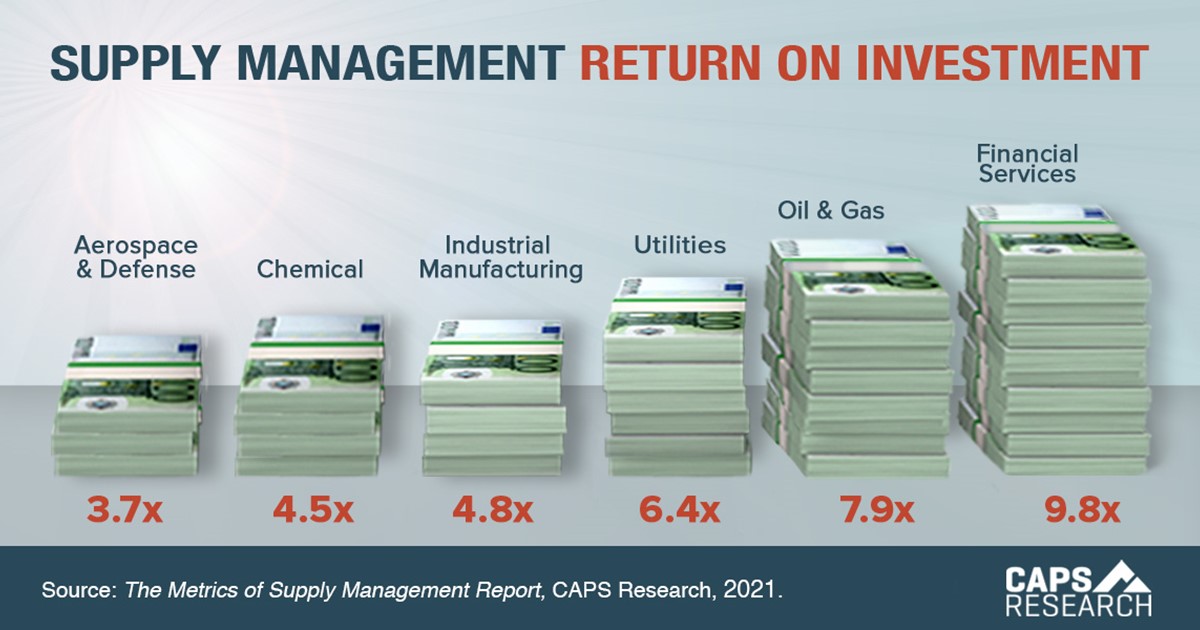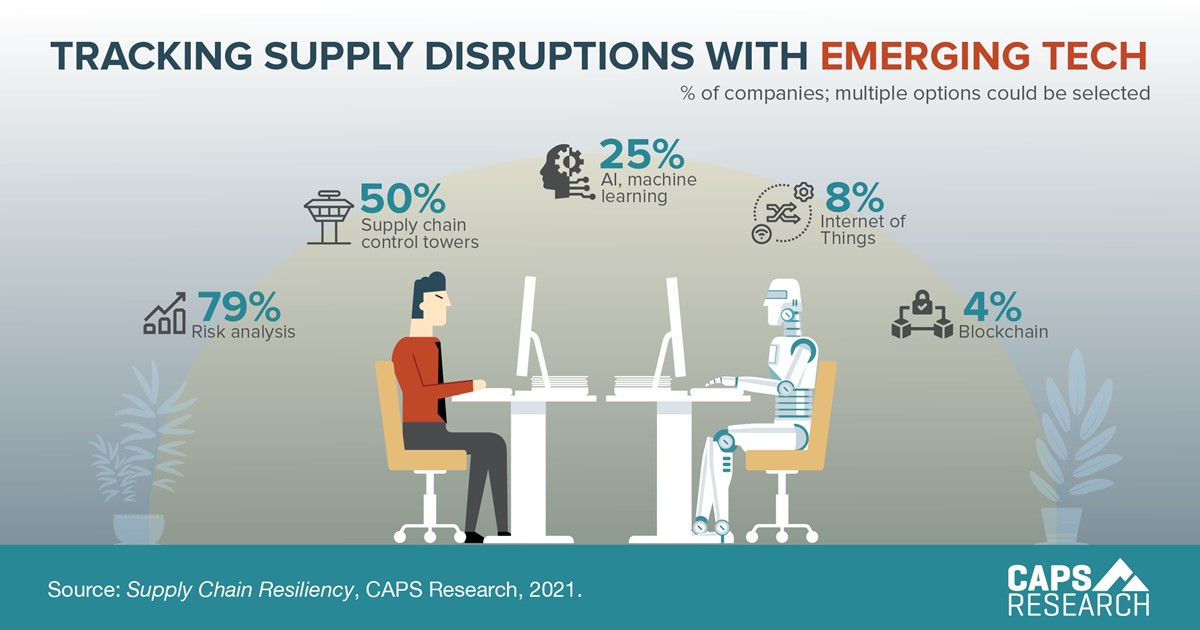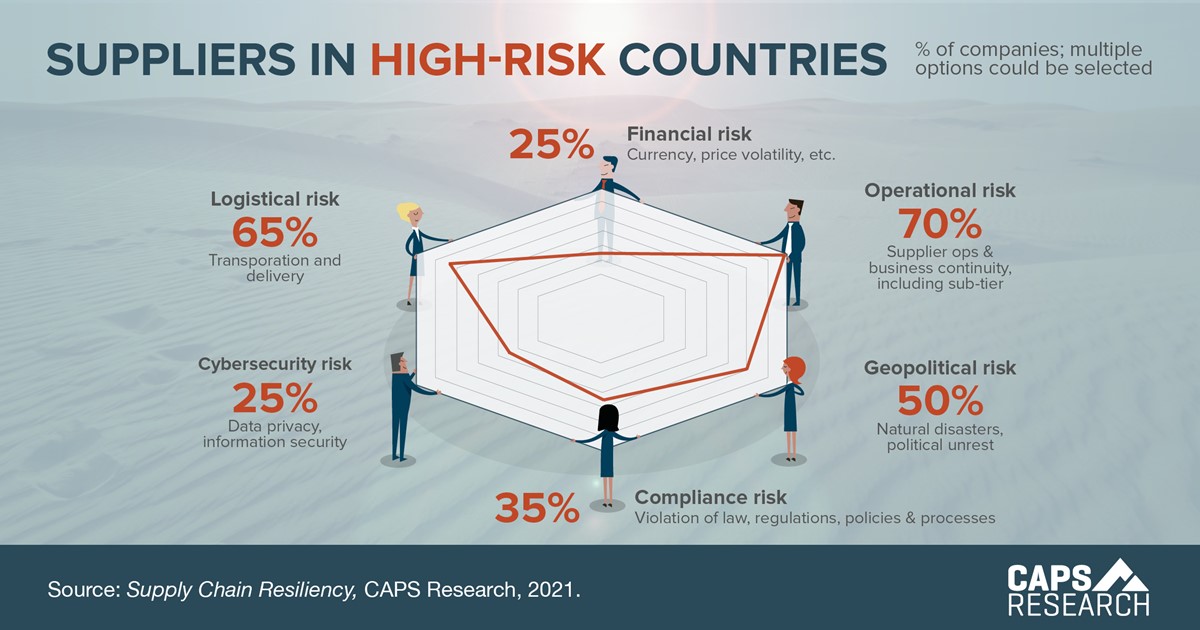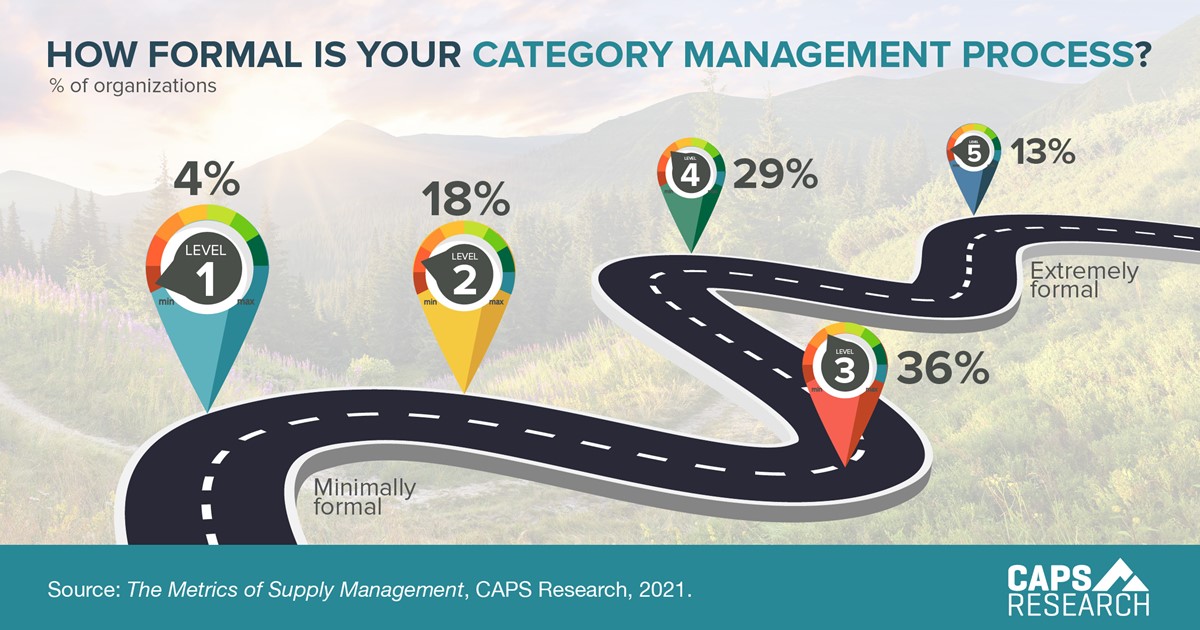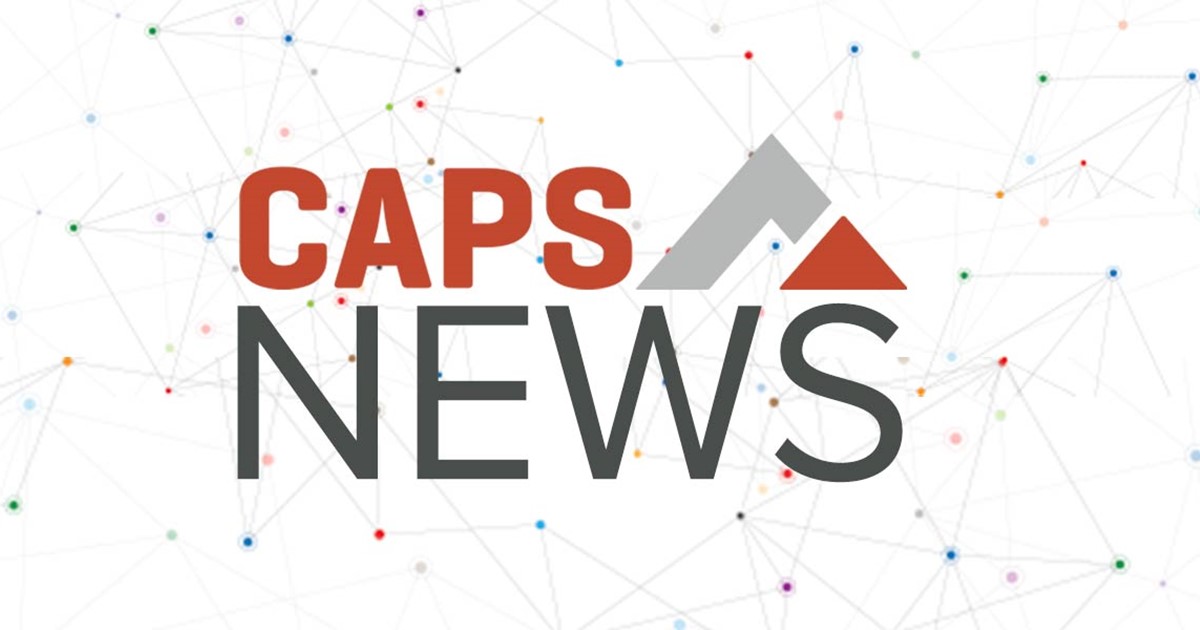The length of CPOs’ careers in procurement and supply management has become progressively longer. CPOs averaged 21 years of experience in 2017, which grew to 25.5 years by 2022.
Reporting levels between the CEO & CPO
With supply disruptions, supplier risk, and cost inflation critically impacting the performance of many companies, why are only 12% of CPOs reporting directly to the C-suite?
Supply management skills and gaps
Strong fundamentals in procurement, supply chain, and supply management will always be important, but supply management leaders are placing increased importance on leadership abilities and interpersonal strengths.
The impact of skills & training on cost modeling
We asked what factors negatively impact effective cost modeling, and top overall impediment was lack of readily available cost data, at 54%; however, the remaining responses revolved around skills and training.
Tactical v. strategic buyers
Tactical buying remains the biggest focus for supply management headcount, claiming 35% of resources. Strategic sourcing has the potential to produce greater value, but these resources are a smaller portion of the team mix.
Supply management ROI
Supply management (SM) return on investment (ROI) is a simple way to communicate the value your supply management group delivers to stakeholders. To calculate your organization’s SM ROI, divide cost savings (reduction + avoidance) by supply management operating expenses.
Tracking supply disruptions with emerging tech
More than half of the companies we surveyed (59%) use emerging technology to identify and monitor disruptions in the supply chain. Although technology underlies each of these solutions, human-driven decisions still dominate the process of identifying and monitoring supply chain disruptions.
Suppliers in high-risk countries
Within the next 18 months, 49% of companies plan to shift supply away from high-risk countries to strategically adapt to supply chain disruptions. Companies say the top risks driving the move are operational (70% of companies), logistical (65%), and geopolitical (50%).
Category Management Process
More than a third of the procurement executives we surveyed (36%) ranked their category management process as moderately formal, while 13% said their program was extremely formal.
CAPS News - 9 February 2022
In this week's CAPS News, prepare for what's next in the supply chain, participate in our CPO survey, and explore timely SCM topics like autonomous electric trucks, consumer pessimism and inflation, and more.
